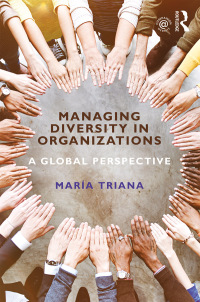When a law allowing gay marriage was implemented in France, a state of agitation developed among some
Question:
When a law allowing gay marriage was implemented in France, a state of agitation developed among some citizens as protesters demonstrated in the streets shortly after President Hollande signed a law legalizing gay marriage in May of 2013 (BBC News, 2013). Some individuals sought to “awaken consciences” and stir others against “the erosion of European civilization”
(Baruch, 2013). For example, Dominique Venner killed himself at Notre Dame Cathedral. Other groups protesting the law cited a large list of what they considered to be proper natural standards described by various famous intellectuals from Thomas Aquinas to Joseph de Maistre (Baruch, 2013).
Protesters opposing gay marriage include the Catholic Church which argues “the bill will undermine an essential building block of society”
(BBC News, 2013). According to sociologist Hervieu-Leger who wrote in Le Monde, “The rhetoric used by the Church (that same-sex couples equals the end of civilization, that they kick out the foundations of human identity, and that they imperil the nuclear family and blur the difference between the sexes) was exactly the rhetoric used in earlier struggles against women’s work or the legalization of divorce by mutual consent” (Baruch, 2013).
Expressing another point of view, Dany Robert Dufour, a libertarian teaching at the University in Paris, wrote in Le Monde, “Let homosexuals marry if they so desire. Let them create and subvert roles and signs of masculinity and femininity. . . .[But] homosexuals should realize that they will never be able to claim full equality with heterosexual couples because the capacity to have children is not a natural function they are missing, but a basic impossibility” (Baruch, 2013).
These comments demonstrate the tension that continues to surround gay marriage in France. During the annual meeting of the association of mayors, most of whom are conservative, President Hollande said that mayors can always refer to the “conscience clause” if they do not want to marry gay couples. This was a surprise coming from the president, both because he is expected to uphold the law and because in French law a “conscience clause”
does not exist (Baruch, 2013). However, some mayors have requested a conscience clause which would allow them to refuse to marry gay couples based on their personal beliefs (Clavel, 2012).
Discussion Questions:
1. After reading this article, what is your reaction to issues around gay marriage?
2. What do you believe drives most of the apprehension conservative groups have toward gay marriage?
3. How effective are the arguments used for or against gay marriage in the article? In your response consider the opinion expressed by the French instructor at the University of Paris who stated that homosexual couples can never obtain equality with heterosexual couples because they cannot have children together biologically. Also, reflect on the fact that some heterosexual couples are not able to have children.
4. Are gay couples less capable of being good parents?
Step by Step Answer:

Managing Diversity In Organizations A Global Perspective
ISBN: 9781138917026,9781317423676
1st Edition
Authors: Triana Maria





